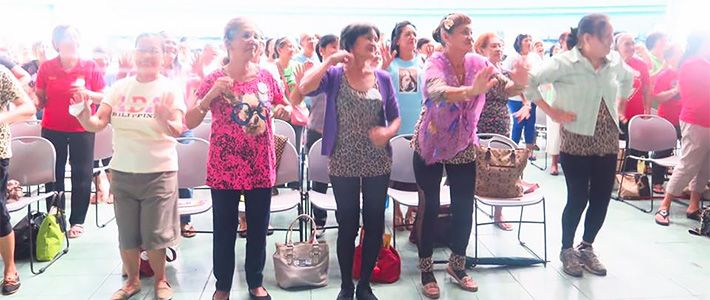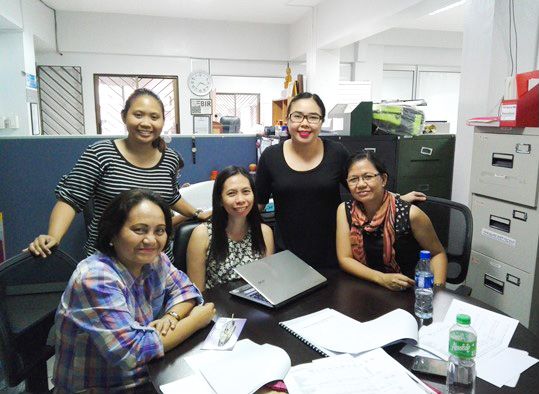
Aging in Japan and Across Asia
NGO Support for Elderly Health, Independence in the Philippines
Society- English
- 日本語
- 简体字
- 繁體字
- Français
- Español
- العربية
- Русский
Rising Reliance on NGOs
The population of the Philippines, now over 100 million, will soon feel the effects of the wave of aging that has already altered demographics across Asia. According to the country’s National Statistics Office, 6.8% of the population was aged 60 or older in 2010. By 2030, that figure is expected to reach 11.5%.
In 2012, the Japan International Cooperation Agency reported that total social expenditures by the Philippine government were on the rise, reaching 32% of the national budget in 2008. However, half of this went to education, culture, and human development, with only 6% spent on social security and welfare. With limited funds available, even Republic Act No. 9994 recognized that local governments would need to combine their efforts with NGOs to support the social welfare of older citizens.
Support for Older Residents on Health, Nutrition, Natural Disaster Recovery
A variety of NGOs and NPOs are active in the Philippines, but few focus their efforts on older residents. The Coalition of Services of the Elderly (COSE) has been offering support for older residents since 1989.
As well as health and nutritional support programs for older residents, COSE also coordinates with the government to offer home care and psychological support and train volunteers for “active aging” initiatives.
COSE also works to support older residents of Negros, Cebu, and Leyte, islands devastated by Typhoon Haiyan in 2013. Collaborative projects with the NGO HelpAge International include organization-building for older residents, Mobile Health Care, and the development of shared “demo farms.”
The organization-building program allows older residents recognize their own situation through management of the organization, and take an active role in society by working with other members to find solutions to problems.
Mobile Health Care, which uses motorcycles to bring medical services to remote areas, was implemented in Cebu and Leyte in December 2014 through cooperation between COSE, HelpAge, and regional governments. Approximately 13,000 older residents made use of this service over 10 months.
“Demo farms” are a technical support project aiming to help coconut farmers whose incomes were severely reduced due to the typhoon switch to crops that can be harvested several times per year. Farmers who have learned these new techniques cultivate the demo farms in conjunction with older residents. For the older residents who participate, these activities are an effective way of moving toward independence, offering opportunities to deepen interpersonal connections and earn income through farm work.
Supporting Full Participation in Society
It can safely be said that COSE and HelpAge have developed their support for older residents in accordance with the actual needs of this group. They work with governments to help train medical providers for older people who are anxious about their health. For older residents who do not suffer from illness or difficulty performing everyday tasks, COSE and HelpAge offer support intended to help them become independent. This combination of support for social participation by older people and care and services for the infirm among them is sure to be a much-desired approach in other developing countries as well in the coming years.
(Originally written in Japanese. Banner photo: People take part in an active-aging event [provided by COSE]. Other photos taken by Jasebell Bañares De Jesus and Jojana Christine Poloyapoy General, and provided by Kashiwagi Shiho.)